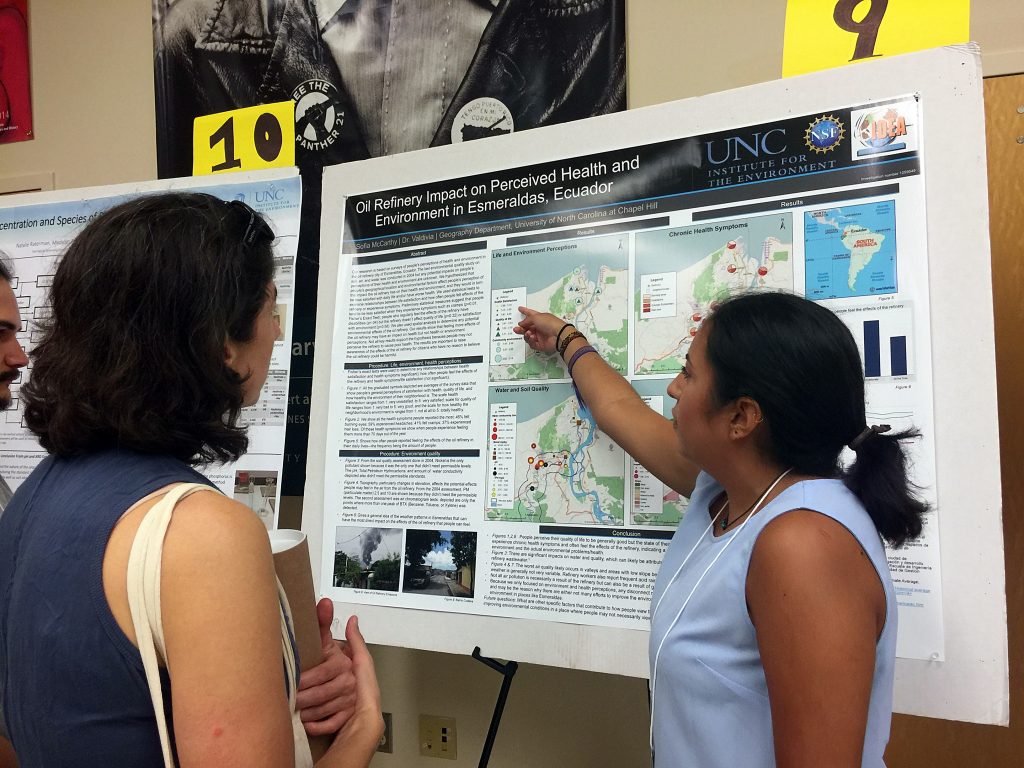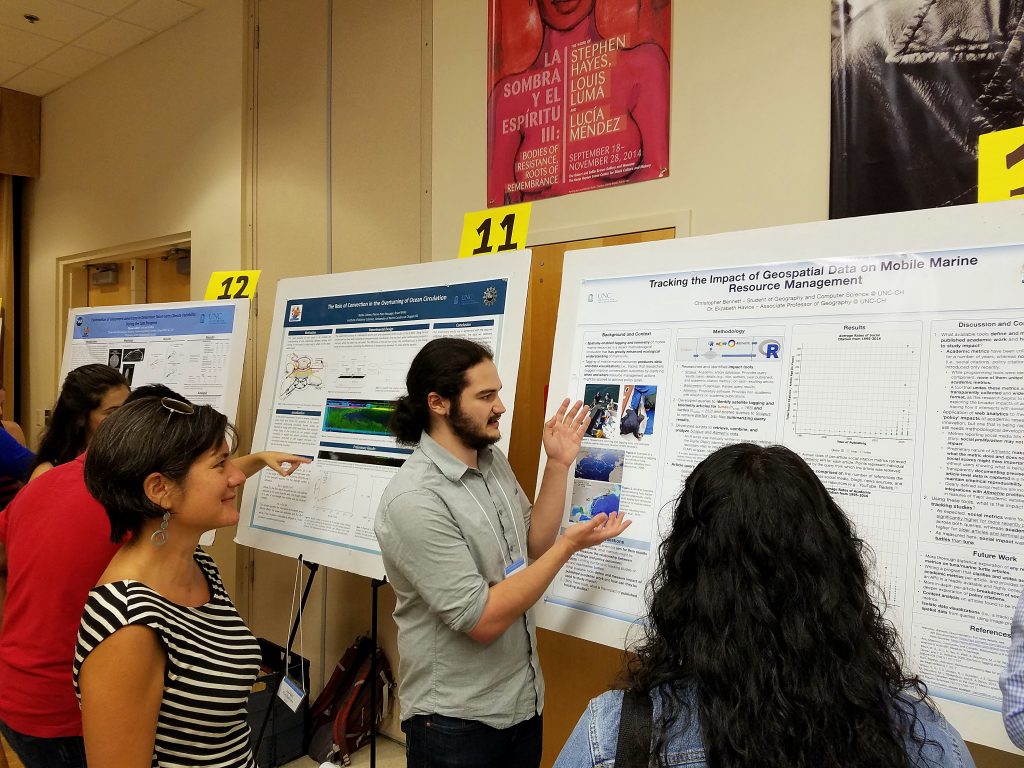Following a summer of research funded by the UNC Institute for the Environment’s IDEA (Increase Diversity and Enhancing Academia) Undergraduate Research Experience Program, geography majors Chris Bennet (supervised by Dr. Elizabeth Havice) and Sofia McCarthy (supervised by Dr. Gabriela Valdivia) presented their findings in poster sessions at the Summer Undergraduate Pipeline Research Symposium. Poster abstracts are as follows and are posters are up in the Geography Department in Carolina Hall, come by and have a look!
Oil Refinery Impact on Perceived Health and Environment in Esmeraldas, Ecuador
Sofia McCarthy and Dr. Gabriela Valdivia
Geography Department, University of North Carolina at Chapel Hill

Sofia McCarthy explains findings at the Summer Undergraduate Pipeline Research Symposium
Our research is based on surveys of people’s perceptions of health and environment in the oil refinery city of Esmeraldas, Ecuador. The last environmental quality study on soil, air, and water was conducted in 2004 but any potential impacts on people’s perceptions of their health and environment are unknown. We hypothesized that people’s geographical location and environmental factors affect people’s perception of the impact the oil refinery has on their health and environment, and they would in turn be less satisfied with daily life and/or have worse health. We used statistical tests to examine relationships between life satisfaction and how often people felt effects of the refinery or experience symptoms. Preliminary statistical measures suggest that people tend to be less satisfied when they experience symptoms such as cramps (p=0.01, Fisher’s Exact Test); people who regularly feel the effects of the refinery have disabilities (p=.04) but the refinery doesn’t affect quality of life (p=0.32) or satisfaction with environment (p=0.58). We also used spatial analysis to determine any potential environmental effects of the oil refinery. Our results show that feeling more effects of the oil refinery may have an impact on health but not health or environment perceptions. Not all key results support the hypothesis because people may not perceive the refinery to cause poor health. The results are important to raise awareness of the effects of the oil refinery for citizens who have no reason to believe the oil refinery could be harmful.
Tracking the impact of geospatial data on mobile marine resource management
Christopher Bennett and Dr. Elizabeth Havice

Chris Bennett explains findings at the Summer Undergraduate Pipeline Research Symposium
Satellite tagging and telemetry of mobile marine resources is a recent methodological innovation. Spatial data produced by these technologies have greatly enhanced ecological understanding of various species of marine life. Researchers also suggest that these data, and their visualizations, can improve conservation outcomes for the species on which they were collected by clarifying where in time and space conservation actions might be most important. However, this claim has never been tested. Focusing on the citation analysis and web analytics components of the information cycle framework methodology, this research quantifies the academic, social and political ‘impact’ of peer reviewed articles on spatial tagging data on tunas and marine turtles. Scopus was queried for academic articles on spatial tagging and telemetry data across species categories. Scripts were then developed in the R programming language to parse the query results and deliver desired bibliometrics and web analytics on each article. These metrics were analyzed within and across the species categories. Results quantified academic impact of the articles and frequency and ways in which scientific findings entered social media discussions and policy outlets. In future research, articles distinguished as impactful by this methodology could be contextualized coupling content analysis methods with qualitative interviews about the science-policy relationships. In addition, visualizations of tracking data might be selected from socially and politically impactful articles, and further contextualized in conservation discussions surrounding and utilizing them.
Keywords: telemetry, tagging, tracking, satellite, tuna, sea turtle, marine turtle, geospatial, bibliometric, metascience, data visualization, science-policy relationship

